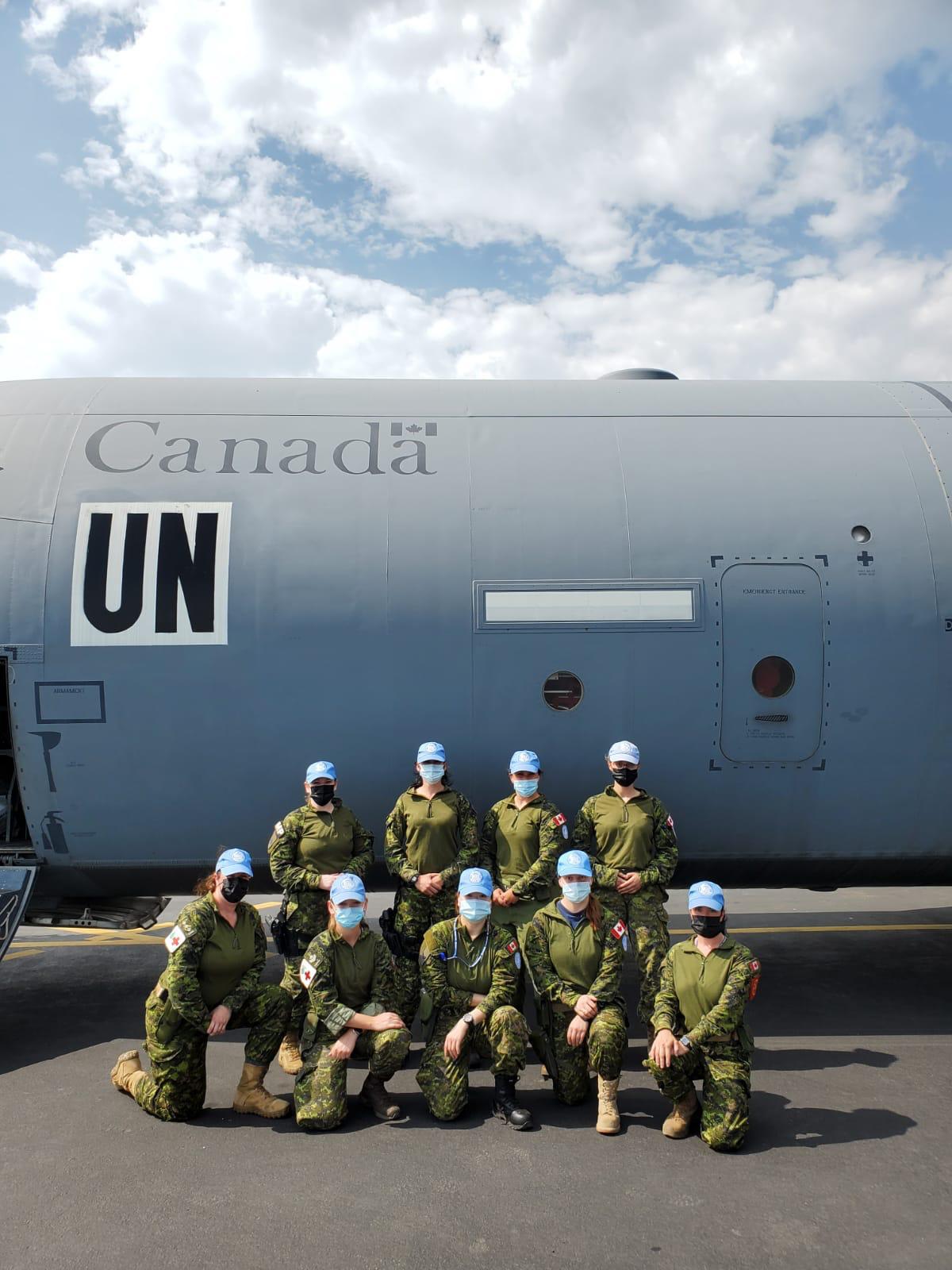The RCAF is outpacing international partners on gender representation on UN missions
News Article / March 11, 2022
Master Warrant Officer Sue McGoldrick
The women of the Canadian Armed Forces (CAF) continue to impress, not because of our gender, but because of our skills, tenacity, and the standards to which we hold ourselves.
Recently, as part of Operation PRESENCE Roto 22-1 based in Goma, Democratic Republic of Congo, the Royal Canadian Air Force (RCAF) showed our international partners once again that women in the CAF are a key to the delivery of operational effects in international theatres.
With 30% of the mission’s Air Detachment being women, the RCAF is outpacing international partners on gender representation on UN missions. In 2020, of the approximate 95,000 peacekeepers, women only constituted 4.8% of military contingents overall, with the CAF already outpacing the 2028 UN target of 15% for women serving in military contingents.
Each member of the team brought a wealth of experience and subject matter expertise to the table. Female aviators and support personnel on this rotation ranged from the rank of Corporal to Major. They fulfilled the roles of specialized technicians keeping the aircraft operational, cargo and passenger management, officers commanding sections, overseeing contracting, operations officer, pilot, and Deputy Task Force Commander.
In fact, five of the eight key commanding and advisory positions were filled by highly experienced, female officers and a senior NCM. Further, the female members of the detachment were highly represented in end tour Honours and Awards for their hard work, professional competence, ethics, and looking out for their fellow detachment members.
Despite being highly respected amongst their CAF peers, the deployment was not without stark reminders of how far we’ve come and how far we still have to go. Other contingents and members of the local diaspora were clearly not used to seeing or working alongside so many serving women.
While the CAF is taking active strides to effect culture change to ensure policies and practices integrate gender perspectives and create a more equitable climate for women, that this article exists to highlight the accomplishments of women specifically means we are not yet at the equality we are striving for.


